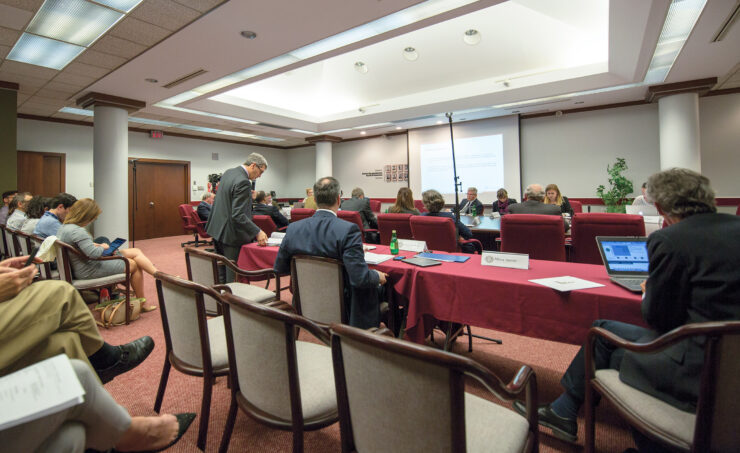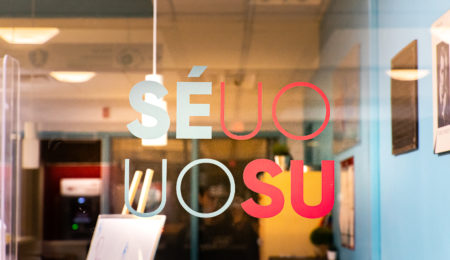The University of Ottawa’s Board of Governors (BOG) is set to meet Thursday for their final time this academic year where they’ll look to approve Transformation 2030, the university’s strategic framework for the next decade.
The meeting will run from 5 to 7 p.m. in the Tabaret Hall Senate Chamber (Room 083), followed by a year-end reception from 7 to 9 p.m. in Alex Trebek Alumni Hall.
From Destination 2020 to Transformation 2030
The BOG will look to approve a plan carving out the university’s path for the 10 years ahead, dubbed Transformation 2030.
“Two decades into the 21st century, having taken stock of our extraordinary growth, uOttawa looks to the future with confidence, ambition and vision, poised to complete our metamorphosis into an illustrious internationally-engaged university,” an advanced and non-comprehensive draft of the strategic framework reads.
Transformation 2030 will be grounded in six “key aspirations” for the university spurred by the framework’s origins, Imagine 2030, which saw the U of O hold consultations with the campus community to define their goals for the school.
They include transformative learning, cutting-edge research, a commitment to the community and to both Franco-Ontarian and Franco-Canadian culture, outstanding leadership and management, and effective governance.
The draft also lists four sample goals within the framework, with a selection of corresponding objectives and actions to help achieve these goals.
First, Transformation 2030 calls for more agility within the university, highlighting objectives such as optimizing programs and mobilizing researchers to engage with emerging scientific and social challenges.
“Our students and faculty — those of today and of tomorrow — demand that we be nimble, and that we seize every new opportunity to create, share and discover knowledge, proactively exploring new pedagogies and learning platforms as they emerge,” the draft reads.
The framework also pushes for more connection within the community and collaboration outside of it. Objectives include strengthening and expanding the university’s presence in Kanata North and expanding the French immersion program into a fully bilingual one.
“In truth, the ivory tower was always more metaphor than reality, but we can no longer maintain even the illusion of the university as an aloof and privileged sanctuary,” the draft reads.
The U of O will seek more impact on the local community and world at large through Transformation 2030. The framework lists prioritizing high-impact research and partnership initiatives and increasing support for student and faculty start-ups as routes to success.
Finally, the framework looks for more sustainability at the university, including the development of a long-term financial viability plan, prioritizing wellness on campus, and improving on support for equity, diversity and inclusion.
If approved, the U of O will unveil a five-year plan detailing all the objectives and specific actions to reach the goals of Transformation 2030. The plan will then be distributed to the university community online.
Destination 2020, the strategic framework for 2010-19, saw the school expand international cooperation with other universities, improve interdepartmental communication with new cross-major programs, and kickstart several new research labs, including the Advanced Research Complex.
Other information to be discussed
The BOG will also talk about the audit results of the U of O’s retirement pension plan and the Association of Part-Time Professors of the University of Ottawa’s pension plan.
The student satisfaction report will also be discussed, spurred from an online survey held from September 2018 to this April and previously unveiled at the senate meeting on June 10.
The BOG will hold their next regular meeting and their first of the 2019-20 academic year on Sept. 30.
—With files from Eric Davison





